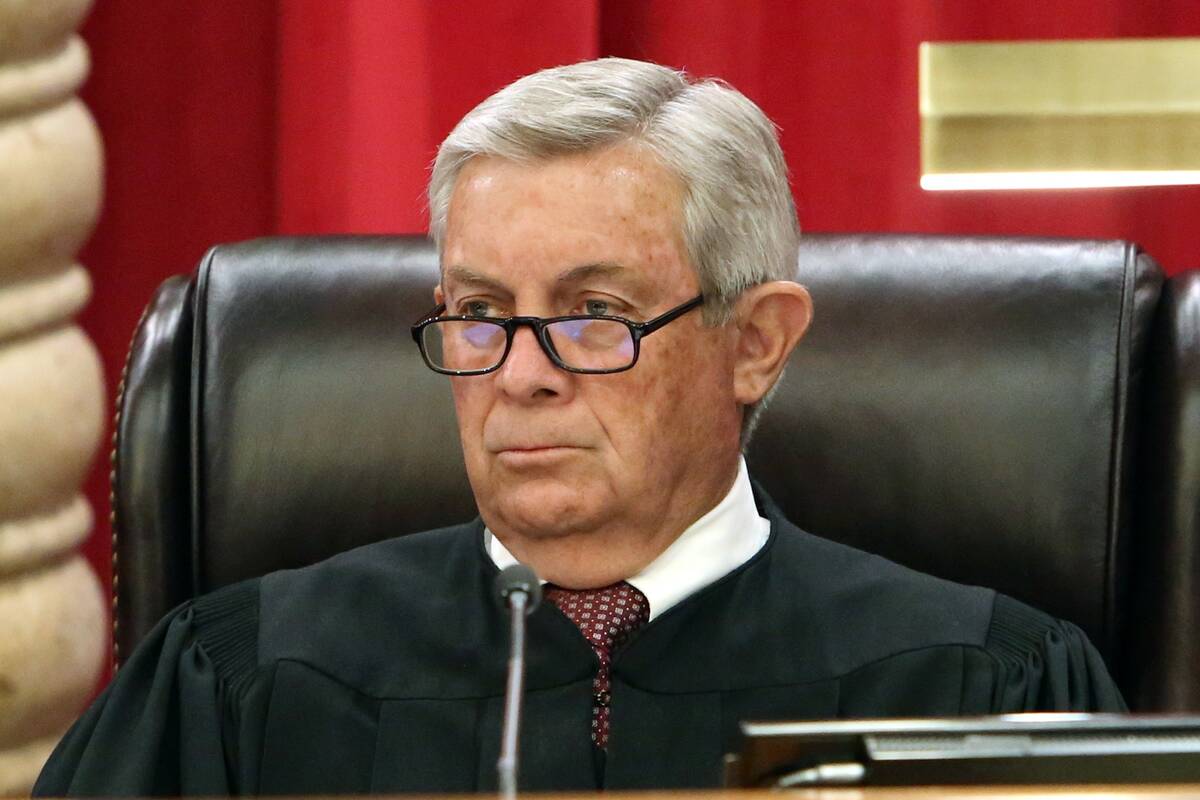James Hardesty won’t seek 4th term on Nevada Supreme Court
CARSON CITY — Nevada Supreme Court Chief Justice James Hardesty will not seek a fourth term on the state’s highest court and will retire after 24 years in judicial robes when his current term expires at the end of 2022, the justice announced Tuesday.
“The Nevada Judiciary has experienced much growth during my tenure on the bench,” the-72-year-old jurist said in a statement. First elected to the bench in 1998, he joined the Supreme Court in 2004.
Hardesty cited his role pushing to create the state Court of Appeals, a move that failed to win the support of voters in four separate referendums before it was finally approved in 2014. The appellate court takes referrals from Supreme Court, hearing about one-third of the high court’s cases.
Hardesty also cited construction of a new appellate courthouse in Las Vegas, efforts to fund “courthouse and technology improvements throughout the state” and expansion of a program that “that increased funding to legal aid organizations tenfold.”
“In addition, I had the opportunity to reform the guardianship system, advance criminal justice reforms, and author over 350 published opinions on Nevada law,” Hardesty said. He thanked his wife and family, his judicial assistant of more than 20 years, 42 law clerks, court staff and other supporters who ”helped me achieve the professional experience of a lifetime.”
A University of Nevada, Reno graduate and Reno native, Hardesty went into private practice there after graduating from University of Pacific McGeorge School of Law in 1975. He remained in private practice until he was elected to the Second District Court bench in Washoe County in 1998. He was named chief judge by his fellow judges in 2001 and again in 2003.
On the Washoe District Court, besides implementing programs to cut incarceration costs and docket delays, Hardesty expanded drug diversion court and other specialty courts and oversaw a judicial budget for 19 judicial officers and approximately 170 employees, according to his official biography.
He was elected to state Supreme Court in 2004, served his first two-year term as chief justice in 2009. He was named to the rotating chief justice post again in 2015 and at the start of 2021.
Among the court’s recent significant decisions, Hardesty authored an opinion in May upholding a lower court’s ruling that found two critical revenue bills passed by the Democrat-controlled Legislature in 2019 unconstitutional because they failed to get the required two-thirds supermajority in both houses.
Writing for a unanimous court, Hardesty found the state’s argument for constitutionality “unconvincing.”
Contact Capital Bureau reporter Bill Dentzer at bdentzer@reviewjournal.com. Follow @DentzerNews on Twitter.


















